Let’s Play! Advancing Reproductive Health Through Sports
Sports have the incredible power to build friendships, strengthen our bodies, increase discipline, and improve teamwork skills. But did you know that sports can also advance reproductive rights?
On April 6th, the International Day of Sport for Development and Peace, we wanted to share the ways sport has been used around the world to raise awareness about women and girls’ health and rights.
One of the most famous examples of sports advancing women’s rights happened right here in the United States when the U.S. Women’s Soccer Team fought for – and won – equal pay for their players.
From Ukraine to Sudan and beyond, here are some exciting ways UNFPA’s uses sports to promote gender equality and reproductive health:
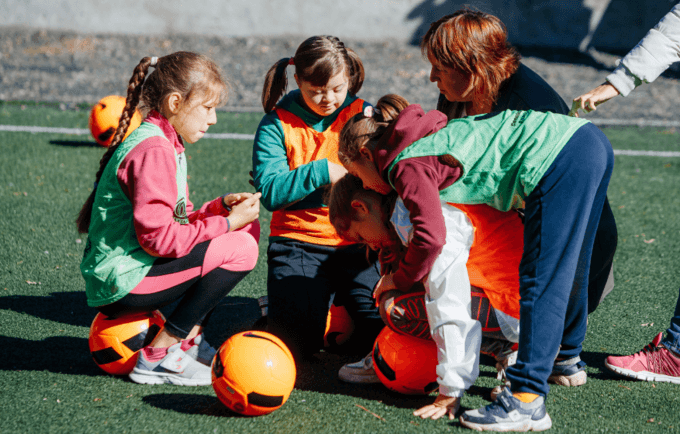
Supporting Ukrainian Girls With Intellectual Disabilities
Before the war and starting in the fall of 2019, UNPFA partnered with the Special Olympics of Ukraine and others to implement “Come On, Let’s Play!” a program of soccer classes for girls with intellectual disabilities.
With classes across the country, dozens of girls received training to improve their coordination, listening, and social skills.
“This program is a great example of how children with disabilities can succeed in a short period of active work if only they get such a chance. Like everyone else, they have talents and potential,” says Lyudmyla Shevtsova, a UNFPA staff member who worked on the program.
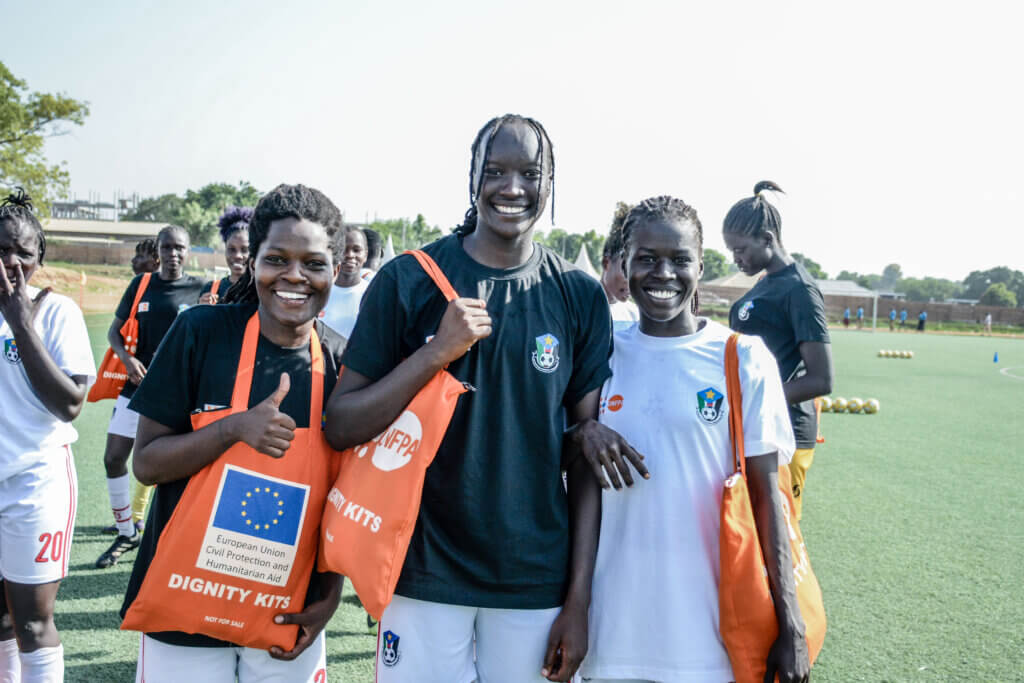
Promoting Gender Equality in South Sudan
In South Sudan, UNFPA and partners worked with women soccer players to teach the values of teamwork, self-reliance, and resilience. Athletes also received dignity kits containing menstrual hygiene products, so they could take care of their bodies on and off the field.
When women and girls are able to manage their periods with dignity, they are more able to participate in sports, school, and their workplaces. This includes in leadership positions, where women and girls’ input is often overlooked.
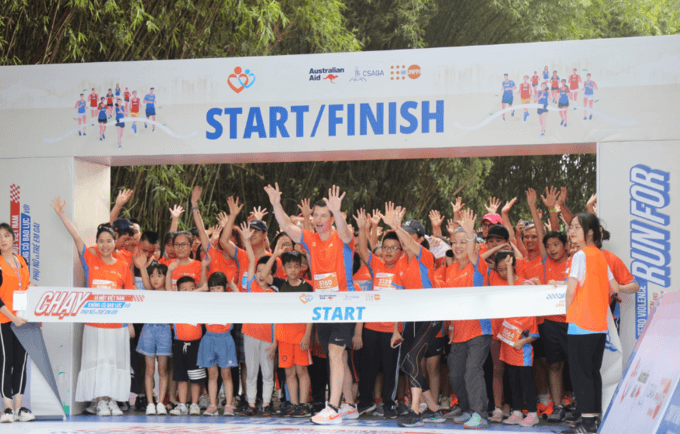
Running for Zero Violence Against Women and Girls in Vietnam
In Vietnam, UNFPA and partners organized a run to say NO to violence toward women and girls.
The 450+ participants included students from the Hanoi University of Science and Technology, who ran under the slogan “Break The Silence, Stop The Violence.” Their mission: to promote respect for women and girls and put an end to violence toward them.
Pauline Tamesis, the UN Resident Coordinator in Vietnam, stressed in her opening remarks, “I am calling on everyone to help us spread the message of the Race today and act as an agent for change towards ending domestic violence in Vietnam, thus building a country where all women and girls are respected and protected.”
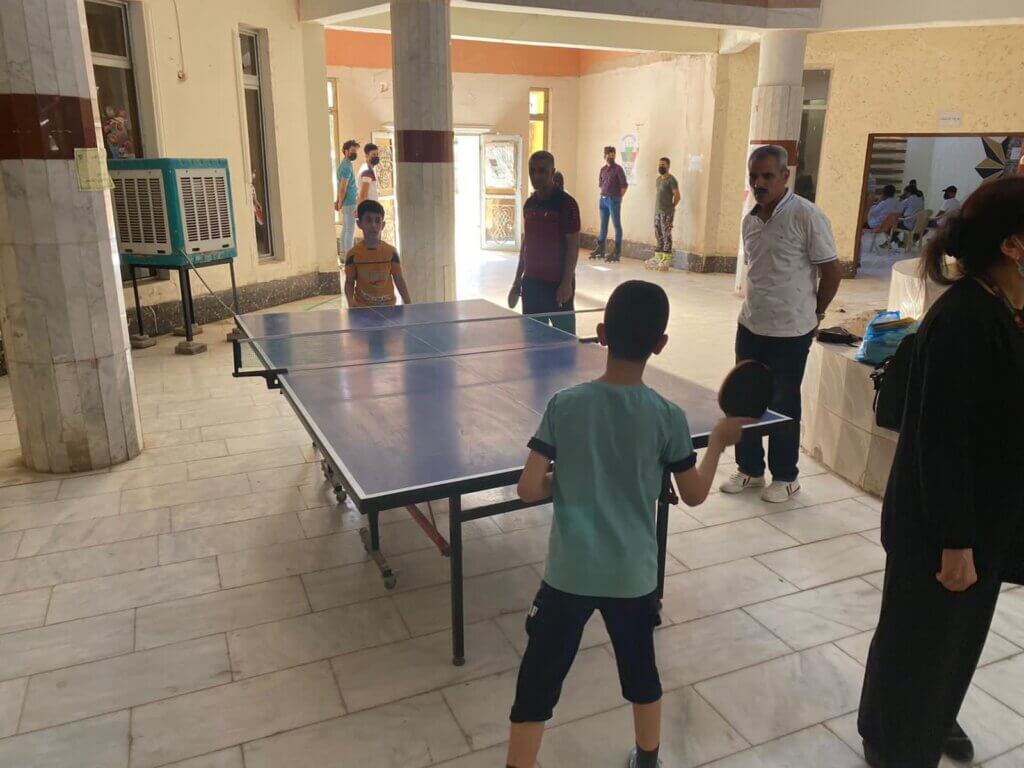
Transforming the Rubble of War Into a Space for Healing in Iraq
What was once an office of Iraq’s Ministry of Youth and Sport became a prison when war broke out. The building that was meant to empower youth had children behind bars. Thanks to your support, the building has been reclaimed as a youth safe space. Today, youth can make friends, play sports, and access educational sessions on issues like social skills, civic engagement, and peace building. We also support sessions on reproductive health topics like family planning, menstruation, and awareness of violence toward women and girls.
Once a place of punishment and terror, the space now brims with kids playing games like ping pong and building new friendships.
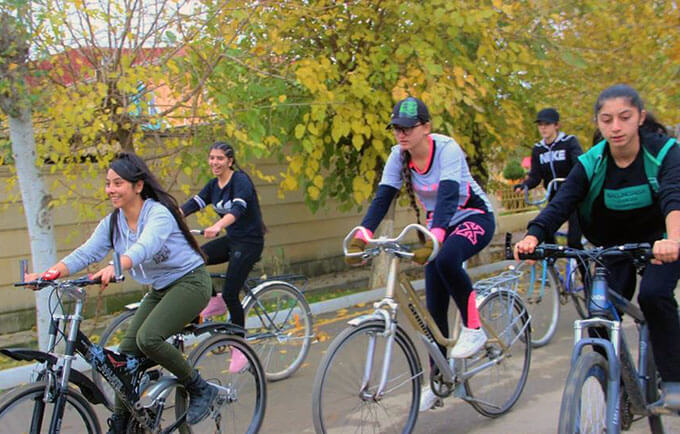
Cycling Towards Girls’ Empowerment in Azerbaijan
Women and girls around Azerbaijan are learning how bicycles can help gain them better access to education, healthcare, and employment.
UNFPA has partnered with the Ladies on Bikes cycling club to promote cycling sports among girls and to link the activity with opportunities to improve access to sexual and reproductive health care. In Azerbaijan, women and girls often have less access to public spaces than their male counterparts. Cycling gives girls the freedom to go to school and work and to access health services, like family planning or counseling for survivors of violence, they may not have been able to access without their bikes.
Biking also enables girls to take up space and counter harmful and rigid ideas around gender roles in the country. Nur Akhundlu, head of “Ladies on Bikes,” says, “Bicycles have long been used as a tool of empowerment, and this continues to the present day. When denied equal rights and opportunities, women fight through rough terrain and create their own paths.”
Play On! Continuring to Promote Reproductive Rights
It is possible to advance gender equality and reproductive rights and have fun at the same time. Every ball kicked, every goal scored, and every step ran is a movement in the right direction. With your help, UNFPA can bring more sports programs to women and girls around the world.
– Laurel Dowswell